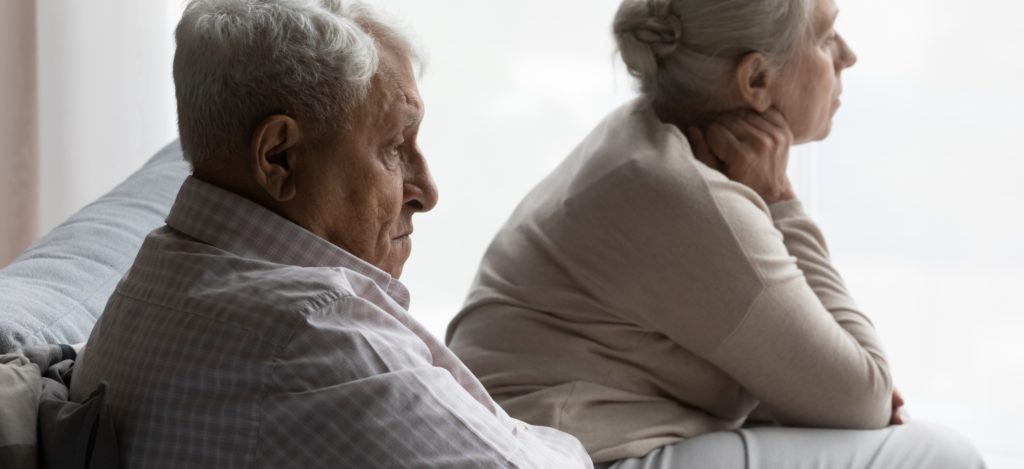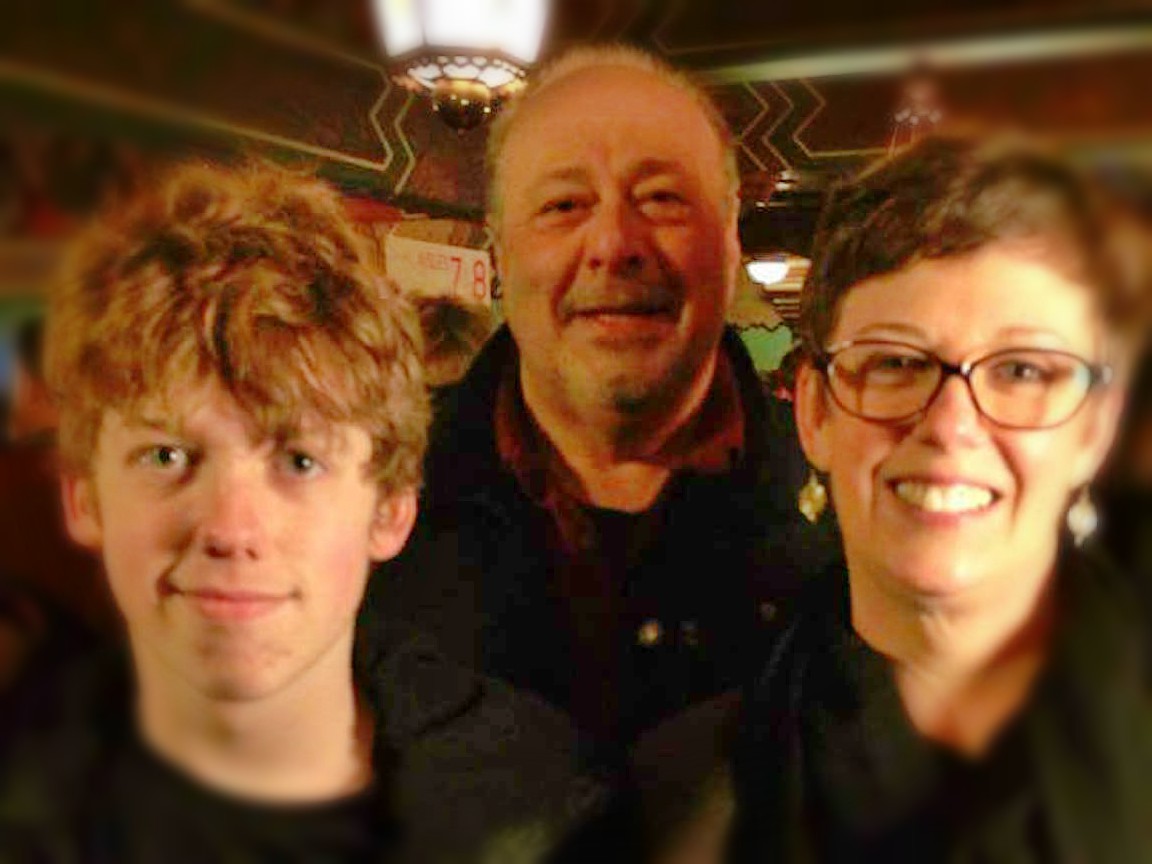The hole that a child’s death blasts through a family can tear a marriage apart. Friends reminded my husband, Bryan, and me of this when we snapped at each other in the days after the suicide of our 21-year-old son, Noah. The anger, guilt, and remorse surrounding suicide loss make it easy to lash out at or withdraw from a partner. This brought Bryan and me to couples therapy for a while and still resurfaces.
When we’re suffering such a grievous loss, how can we soothe a partner who’s suffering the same thing? In the early months, Bryan and I didn’t have much comfort to spare; we were too depleted. We cried alone and confided in precious friends, support groups, therapists. If we reached out to the other during a crying fit, we were both in tears and struggling for calm. We clung to each other at night, awake in separate nightmares. We were doing parallel grief, like children do parallel play.
I’d rarely seen my husband cry before. For weeks after Noah died, several times a day, he sobbed and rocked on a bench in the backyard. I’d never seen his good-humored face so crumpled, his eyes so cloudy, his shoulders so defeated. His features looked stricken for months, then settled into an unfamiliar glumness. I felt terrible for him who, unlike me, had never had a major loss before. I wished I could enfold him in a soft cocoon and that he could do the same for me.
In the first year or so, it was hard to know from one moment to the next whether we could grieve together or grope our way out together. I worried that if I was upset and Bryan was numb, any lament from me would catapult him back into misery. Or if I was feeling steady and didn’t realize that he was teary, whatever I did might jar his mood. We were too emotionally exhausted to know whether we needed time alone or with others, and how much space to give each other before it became a chasm.
It’s one thing to say people grieve differently and another to live it every day with your spouse in a broken family. One of us took a leave from work; the other went back after two weeks. One of us became immersed in reading and writing related to suicide; the other in gardening, home improvement, and hobbies. One of us promptly left social gatherings when uncomfortable; the other felt obliged to be present. One of us found Noah dead and couldn’t go in the garage for many months; the other felt at home there because it was the last place Noah had been. Sometimes one of us, sometimes the other, could relax and enjoy a little.
In the early stages, we came together over comfort food, comfort TV, Shabbat services at our synagogue, and visits with our living son, Ben. We shared inspiration from our respective support groups and frustration from gatherings with relatives who avoided saying Noah’s name. We teamed up to track down every clue we could find to our son’s demise. We agonized over what to put on his gravestone, planned memorials, and went out for Noah’s favorite donuts on his birthday.
Gradually, we began to remember our son together. We brought each other stray memories and pictures like gifts. We treasured every message and visit from Noah’s friends.
Two years after the suicide, we were on firmer ground. We could usually tell if the other was having a grief surge and offer a hug. We could usually bring up Noah’s name without worrying that the other wasn’t ready to hear it; his life and death were so much on our minds that any mention, anytime, seemed natural. Three years after the suicide, we worked together to launch a remembrance fund that supports suicide prevention programs, as well as activities that enriched Noah’s life, like outdoor adventure and international student exchange. And we lovingly planned a celebration of life on what would have been Noah’s 25th birthday for family and friends.
Now, at four and a half years after the suicide, Bryan and I still grieve differently. I delve into the why’s and what-ifs of Noah’s situation and of suicide generally; my husband doesn’t want more information. He visits the cemetery regularly to talk to Noah and give him the latest news; I mostly avoid the place and talk to Noah’s photos around the house. I want to travel to refresh my mind and carry on Noah’s wanderlust; my husband usually feels more safe and comfortable at home.
We’re not alone in those differences. Psychologist John Jordan, in Grief After Suicide (2011), calls this “coping asynchrony” in couples and points to a common contrast between more “instrumental” approaches to grief that are action-oriented versus more “intuitive” approaches that focus on the outpouring of feeling. Many people blend the two approaches along their grief journey. Guess which way I and many women lean?
Suicide grief has both stressed and strengthened our marriage. Whatever else, my husband and I know each other better for walking this path, alone and together. It would be tougher to go through all this without a partner; I hope that my fellow parent survivors who are not in a relationship can find the support they need through others. And I hope all of us parent survivors can talk more openly about this part of our grief story, here and wherever we meet.




